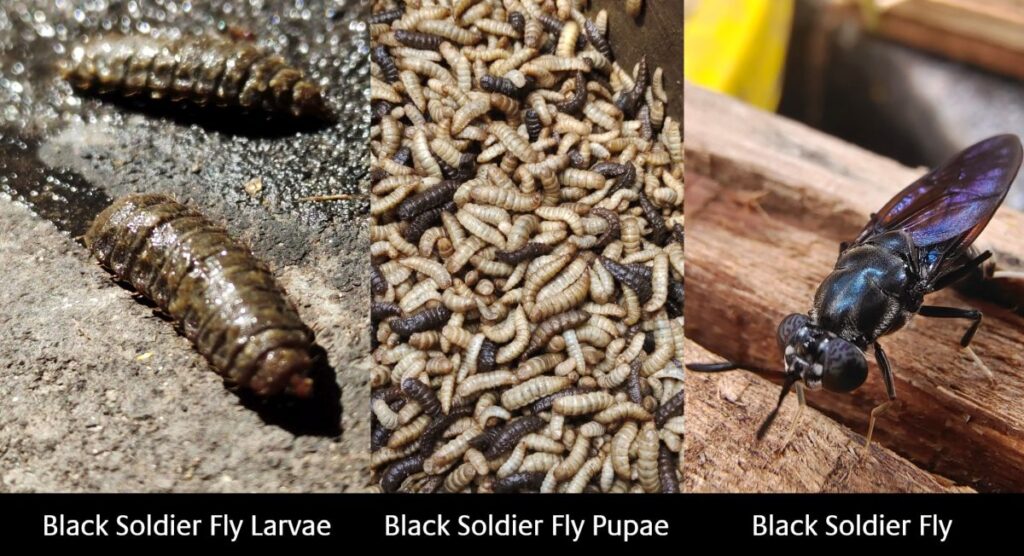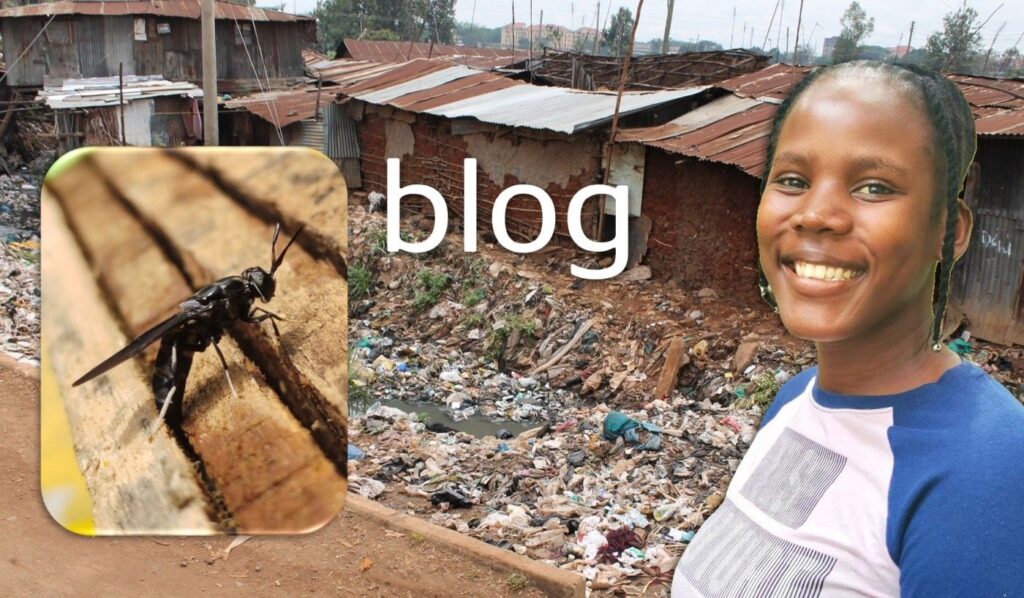Growing up in Nyalenda in Kenya, Caren experienced firsthand the harmful effects of organic waste accumulation on health, environment, and community well-being. Her encounters with unemployment-driven criminal activities further fuelled her determination to start her organization. Caren initiated her project in September 2022. Interested to learn more, keep reading…
By Caren Jobita
The awful smell stuck to Amani Miti like glue, no matter how much she tried to get away from it as she walked through the corners of Nyalenda and more so as she did her daily routines of chicken rearing in the chicken coop behind her small hut. Chicken farming was her main source of income, and it was becoming challenging because chicken food had become very expensive. On the other hand, there were heaps of fruit peels, discarded vegetables, gutted fish waste and week-old ugali rotting under the unforgiving sun, forming a breeding ground a group of flies. This was the daily reality of life in Nyalenda, a place where the very things that sustained them turned into a suffocating threat.
The Stench of Neglect: Nyalenda’s Growing Waste Woes
Some children with their bare feet played games around the garbage heaps while most did not. Amani’s children could not even find that play space because her area was in a worse situation with the heaps of the waste that kept growing day by day. Whenever it rains, the River Auji would overflow into her home leaving even more waste and an awful odour behind. The air, thick with the smell of decay, stung Amani’s nostrils. She remembered her grandmother telling her tales of how there was a time, not long ago, when Nyalenda wasn’t like this. Back then, the air held the earthy scent of rain-soaked soil, and evenings were filled with laughter of children playing in a field dotted with vibrant green mango trees. But that was before the invasion of people choked the land, leaving little space for anything but overflowing bins and rotting smelly heaps.

Overflowing Challenges: A Mother’s Fight Against Waste in Nyalenda
One day, a group of young, energetic volunteers arrived in Nyalenda. They spoke of the dangers of improper waste disposal – the clogged drains that caused floods during heavy rains, the stinking breeding grounds for insects and pests that constantly attacked both the old and the young as well as about the stinking air that choked their lungs. Amani listened with a growing sense of unease. She had always known the smell was bad, but she hadn’t realized the full extent of the dangers. She wished something could be done about the situation. She felt some hope because a number of initiatives were started to take on plastic waste, however she wished for more because no one cared about the other waste, the organic waste.
Most people assumed that organic waste is not as harmful when indeed it causes quite some problems too.
Shifting Mindsets: Awakening to the Hidden Threats of Organic Waste
The biggest obstacle that Amani found were changing mind-sets. She also realized that she, together with all residents had a great influence on the situation they were in. They could start by finding out how they could properly dispose their waste. Most of the households did not have separate waste buckets, but even those who did, in the end it was all mixed up again.
This made me think of the innovative ways in which this problem could be tackled. I greatly resonated with Amina because this was my community too, I felt her frustrations to the core. One question kept lingering through my mind; what if our waste wasn’t waste at all, but a hidden treasure waiting to be unearthed?
From Waste to Wealth: Unearthing Nyalenda’s Potential
One day, I attended a training about the use of Black Soldier flies. These can be used to turn organic waste into two products: Pupae and manure. Black Soldier Larvae eat organic waste, and once they have gained sufficient weight, turn to Pupae. The Pupae can be used to feed chickens, pigs and other animals. A byproduct is manure.

Black Soldier Flies: Transforming Nyalenda’s Waste Crisis
It is now my mission to introduce a sustainable waste management system utilizing Black Soldier Fly Larvae to repurpose agricultural, kitchen, and market waste. This initiative aims to enhance environmental quality, social well-being, and economic opportunities, not only in my community, but even beyond.
Learn more about another kanthari who works with the cultivation of Black Soldier Flies in Nigeria: https://entojutu.org/
Learn more about the kanthari course at www.kanthari.org



